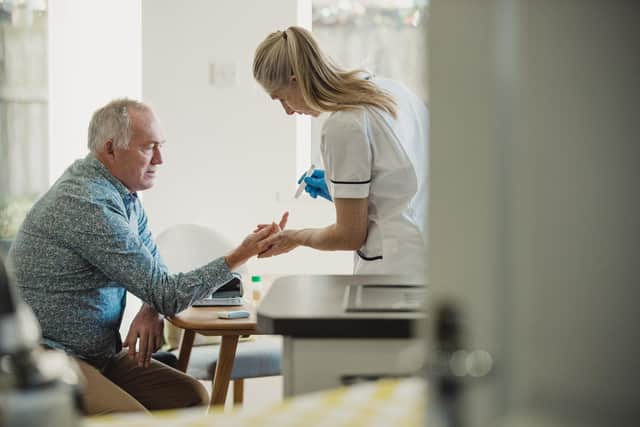Blood test could help better predict leukaemia risk for older people, Scottish study shows
and live on Freeview channel 276
By identifying those most at risk it should be possible to provide preventive or early treatment to improve patient outcomes, experts say.
In the UK, 28 new patients are diagnosed with leukaemia every day. Each year more than 40 per cent of all new leukaemia cases in the country occur in people aged 75 and over.
Advertisement
Hide AdAdvertisement
Hide AdAs people age, their blood system can become damaged, potentially increasing the chance of developing blood cancer like leukaemia.


Dr Kristina Kirschner, co-lead author and senior lecturer at University of Glasgow’s Institute of Cancer Sciences, said: “In knowing an individual patient’s risk of developing leukaemia, clinicians can schedule shorter gaps between appointments in those most likely to develop the disease and provide early treatment, which is more likely to be successful”.
Dr Linus Schumacher, co-lead author and Chancellor’s Fellow at the Centre for Regenerative Medicine of the University of Edinburgh, said: “By linking genomic data with machine learning we have been able to predict the future behaviour of blood cells based on the mutations they develop.”
The researchers, based at the University of Edinburgh, University of Glasgow and the Cancer Research UK Beatson Institute, used data from a long-term study in Scotland that collects information from people as they aged.
Advertisement
Hide AdAdvertisement
Hide AdThey measured changes in blood samples over a 12-year period, in a group of 85 people from the age of 70 onwards.
The scientists combined this data with an artificial intelligence algorithm to link different gene mutations with different growth speeds of blood stem cells carrying these mutations.
If lots of these cells with mutations develop, the risk of cancer grows.
The chances of these groups of mutated cells developing increases with age.
Advertisement
Hide AdAdvertisement
Hide AdExploring the mutations in more detail allowed researchers to better identify gene changes that were likely to go on to cause disease such as leukaemia.
Knowing who has these mutations means they can be more closely monitored to diagnose and treat the disease earlier.
Dr Dawn Farrar, Director of Impact at Leukaemia UK, said: “These are exciting new findings.
“The ability to detect leukaemia at the earliest opportunity in the elderly may provide options for less harsh, but effective treatments.”
Comment Guidelines
National World encourages reader discussion on our stories. User feedback, insights and back-and-forth exchanges add a rich layer of context to reporting. Please review our Community Guidelines before commenting.
